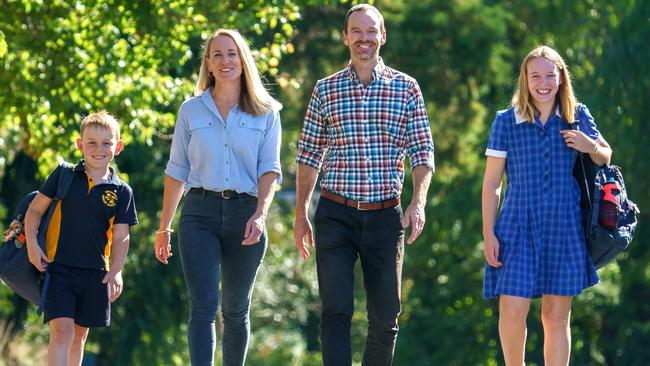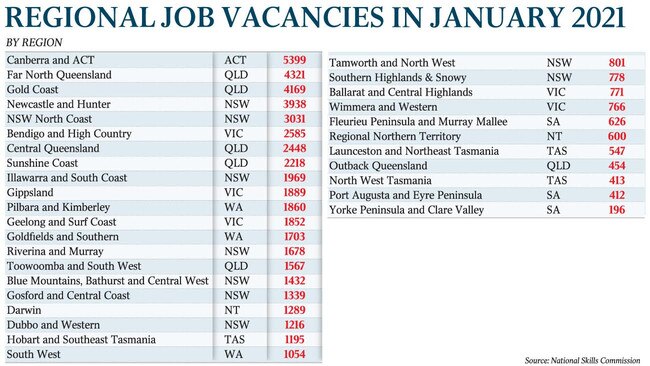Golden chance to live good life out of city
Not since the mining construction boom a decade ago has there been such demand for highly skilled regional workers.

When we think of worker shortages in regional Australia, what’s the first thing that comes to mind?
Fruit pickers? Fair enough. Images of fruit rotting on the ground are compelling.
However, most of the 54,500 jobs currently unfilled in regional Australia are high-skilled, relatively well paid, many in the professional or management ranks.
“Most vacancies in the regions are still for highly skilled trades and professionals including automotive, engineering and construction trades, medical practitioners and nurses, health diagnostic and therapy professionals,” the Regional Australia Institute’s jobs summary states.
“Every one of the 32 regions outside the mainland state capitals had more vacancies in January 2021 than a year earlier. This level of demand has not been seen since the mining construction boom of 2010-12.”
Professionals make up 13,777 of the available jobs, the largest proportion, with managers another 4000, and more than 9000 technicians and trade workers.
The ACT is a high demand area for fresh talent, with north Queensland, the Gold Coast and the Hunter Valley other hotspots.
So what is the blockage? In some sense there isn’t one. The jobs vacant now aren’t the same jobs vacant a year ago. For every job filled another is created, an indication of growth in the regions. But bridging this stubborn jobs gap could really turbocharge the regional economy.
The COVID-19 pandemic, for all its damage to regional tourism, could help build that bridge, Regional Australia Institute chief executive Liz Ritchie said.
“COVID has transformed the old thinking about proximity to the city,” she told The Australian.
“People living in the cities have reflected about the kind of life they want to live. They are strung out and in search of something new. For many, regional Australia is something new.
“Our research shows one in five people living in Sydney, Melbourne, Brisbane and Perth are looking to relocate to the country, to live and work where they love,” Ms Ritchie said.
The big shift may have already started. The latest ABS data shows a net 11,200 people moved from the cities to the regions in the September 2020 quarter, building on 11,000 from the quarter before.

Engineer Leigh Findlay has worked on huge construction projects including London Heathrow’s T5 terminal and the expansion of Tullamarine airport.
A decade ago, he sold his two-bedroom terrace in the bayside Melbourne suburb of Elwood and returned to his home town of Shepparton to work in his father’s small engineering and construction company. It was only going to be temporary, with a job in Singapore in the offing.
He’s still there.
Mr Findlay, 43, said his wife Bree and kids Zara, 12 and Lachlan, eight, are very much settled into life in the town. The Elwood settlement bought them a big family home, the business is booming, and the pace of life is much more to their liking.
“You don’t realise while you’re living in the city how hard you are going,” Mr Findlay said.
“The commute to work, the traffic, the getting around. It becomes second nature to jump on the Underground in London with all the hordes. You just do it, and you don’t notice it until you stop.
“For me now, my drive to work is five minutes, I can duck home for lunch. I get to drop my kids off at school. We’ve got a bit of time to just live,” he said.




To join the conversation, please log in. Don't have an account? Register
Join the conversation, you are commenting as Logout